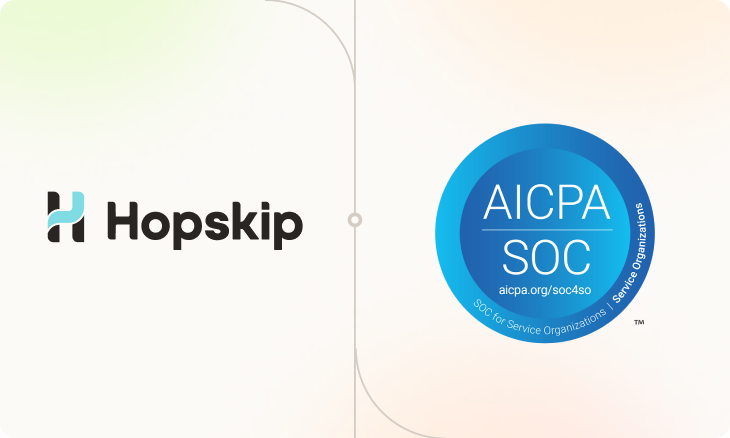
This is a guest post by Barbara Dunn, Attorney & Meeting Industry Expert. This article shall not be considered legal advice. Readers are advised to consult their legal counsel.
Speakers can make or break your organization’s meeting. Yet, while much scrutiny is given to selecting a speaker, not as much is given to reviewing and negotiating the speaker’s contract.
These contracts, whether prepared by the speaker or by the speaker’s representative/agent/speaker’s bureau, are often positioned as “non-negotiable,” but negotiating and reviewing are necessary to ensure that the organization is in a strong position to protect itself and its meeting. Following are several key questions to consider when reviewing a speaker contract (“Contract”).
What is the topic of the presentation?
While this would seem to be an elementary point, the topic is often overlooked or generalized in the Contract. For example, if Susan Speaker is hired to speak on “current trends” for ninety (90) minutes, there is no telling what “current trends” she will be speaking about during her presentation. Instead, the Contract should provide as much detail as possible about the topic and the audience so that the presentation will be on point for the group.
What is the speaker fee and expense arrangement?
This is a much negotiated provision in the Contract yet once an amount is agreed, the Contract should provide that a small payment of the fee is made upon the signing of the Contract with (ideally) the remainder to be paid after the presentation. If more payment is required before the presentation, it is a good strategy to try to hold back some percentage of the fee (say 10%-20%) just in case the presentation does not meet the organization’s requirements.
Also, it is important to “fence in” the speaker’s travel and other related expenses by requiring a particular class of air travel or offering a flat-fee travel stipend. The organization should offer to provide hotel accommodations and ground transportation to ensure such costs remain within its budget.
What event(s) trigger a speaker’s right of cancellation?
This is a key provision to address in the Contract. It is common that in contracts for celebrities or politicians, the speaker has the right to cancel the Contract without liability for “overriding professional obligations”. That is an easy out, and it does not provide protection to the organization. So, while it is common that no payment will be due and no liability will be incurred by either party if the speaker is unable to present due to their death, disability, or other incapacity, it is important to try to remove any other reasons for the speaker’s cancellation.
If the speaker cancels the Contract for any reason, the organization should receive a full refund of all fees paid to the speaker as well as any reimbursement for any refundable travel expenses or travel stipend paid to the speaker. Further, if a speaker’s bureau or agency represents the speaker, the bureau or agency should be responsible for providing the organization with replacement speakers with the same or lower fee. The approval of the replacement speaker, however, should be at the discretion of the organization.
What events trigger an organization’s right of cancellation?
Every contract needs “exits,” including speaker contracts. As such, the Contract should include rights of cancellation without liability for the organization to cancel the Contract without liability. These rights include:
- Breach of Contract by Speaker: Speaker fails to meet the deadlines and deliverables set forth in the Contract.
- Speaker Engages in “Bad Behavior” Before the Presentation: If the organization receives credible information that the speaker has engaged in “bad behavior” before the presentation, the organization needs to have the ability in the Contract to cancel without liability. Any behavior which would negatively reflect on the organization’s public image and reputation, be offensive to the organization’s stakeholders, or is otherwise “outside of the character and purpose” of the organization should trigger a right of cancellation without liability.
- Organization Makes a Business Decision to Cancel Speaker: The Contract should allow the organization the right to cancel for any reason should it choose to go in a different direction for the presentation. In the case, it is best if the organization tries to limit its exposure when negotiating the cancellation fee amount and the date the cancellation fee is triggered.
The Essential Hotel Contract Guide for Event Planners
What intellectual property rights and representations should be included?
There are many important intellectual property rights that must be addressed in the Contract, including the following:
Organization Wants Recording of Presentation For Future Use
In order for the organization to have the right to record and to use the recording in the future, the organization must obtain the speaker’s consent to do so in the Contract. While the speaker does not need to transfer ownership of the presentation to the organization, the speaker should grant the organization a broad license (permission) to use the recording in any manner it may choose without further payment to speaker. Beware of language in the Contract which refers to use “For Archival Purposes Only” which prohibits the organization from live-streaming the speech and may prohibit the organization from further use of the presentation on its various platforms.
Speaker Uses Infringing Material and/or Makes Defamatory Remarks
The Contract should provide that the speaker has rights to use all of the material in the speaker’s presentation – whether through their ownership of the materials and/or a license (permission) they obtained from the owner of the materials. Further, the Contract should provide that the speaker is not to make derogatory or defamatory remarks in the presentation. In either case, if the speaker does not comply with these provisions and the organization is sued by the owner of the materials or the subject of the defamatory remarks, the speaker must indemnify the organization against any claims, i.e., pay all legal fees and damages awarded against the organization as a result.
Speaker Prohibits Photography or Recording
While the speaker may prohibit the organization from photographing or recording the presentation, beware of contracts that contain a provision that “no attendee shall photograph or record the presentation,” as the organization will not be able to enforce this provision. While it can make announcements to attendees regarding this restriction, there is little way to make sure no photos or recordings are made. A good compromise is to say that the organization will use “reasonable efforts” to ensure that attendees understand the restrictions on photography and recording of the presentation.
While these are just some of the questions to consider when negotiating or reviewing a speaker contract, be sure to thoroughly review and vigorously negotiate the Contract to protect the organization’s interests.

Barbara Dunn is a lawyer and trusted advisor to meeting professionals. With more than three decades of experience, Barbara helps her clients navigate negotiations and finalize effective contracts for their meetings and events. Barbara is the owner of her own law practice, Barbara Dunn Law PLLC, following her tenure as a capital partner at the law firm of Barnes & Thornburg. Barbara can be reached at barbara@barbaradunnlaw.com



